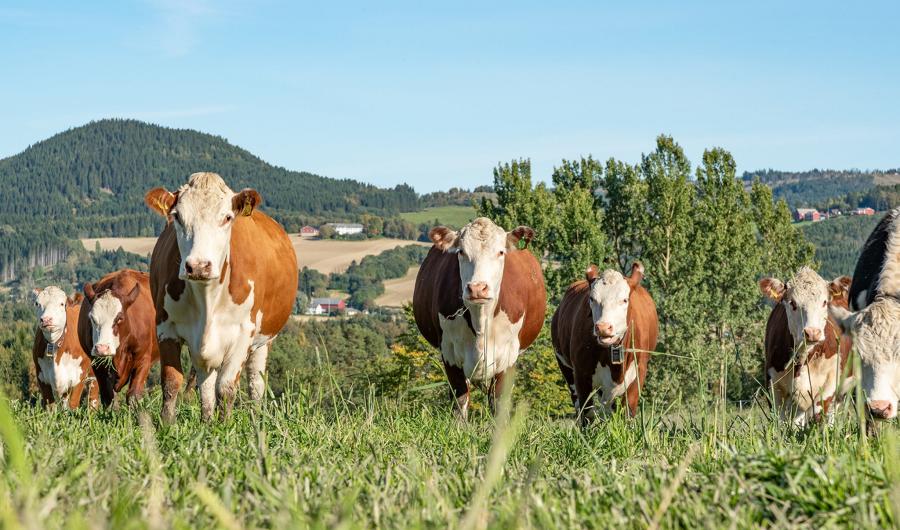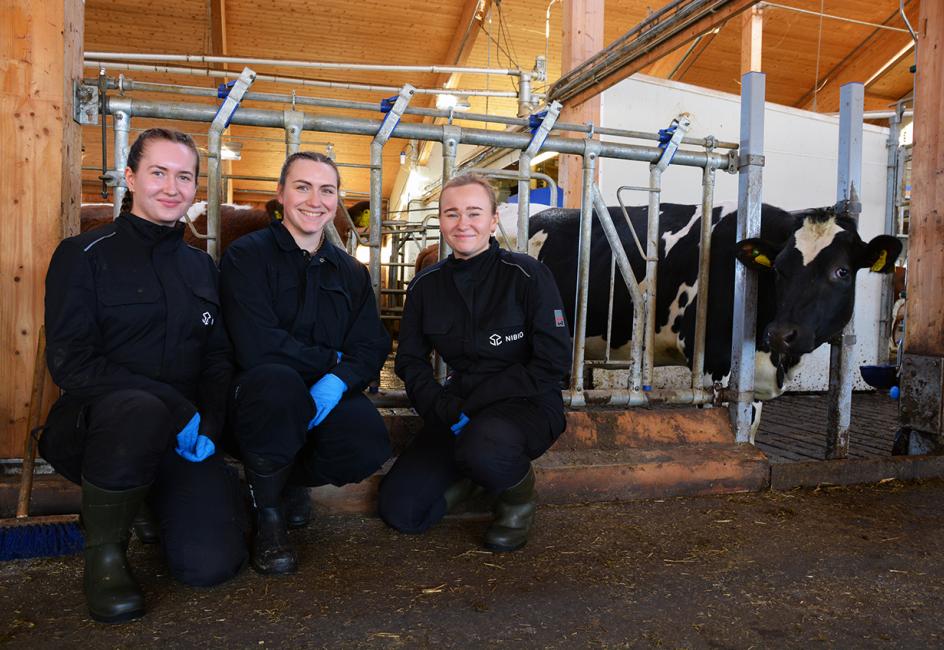
Livestock Science
Do you want to engage in developing future food production, ensuring good animal welfare, and contributing to a sustainable agriculture?
Programme description
Career opportunities
Higher education entrance qualification
Norwegian language proficiency
Would you like to spend a semester abroad at a foreign institution? We highly recommended our students to spend part of their degree at one of our collaborating universities. Studying abroad is an exciting opportunity to gain international experience, while allowing a broader selection of topics and courses. A study abroad compliments your degree best in the fourth semester.
We have dedicated staff who will do their best to help you with your stay abroad. For more information on the process, please contact Jose de Pool, advisor for study exchange.
The application deadline for exchange in the spring semester is 1 September.
Upon successful completion of this programme, the candidate:
Knowledge
- has thorough knowledge of livestock anatomy and physiology, health, welfare and production
- has thorough knowledge of production economy and construction solutions in livestock production contexts
- has thorough knowledge of public laws and regulations that are important to livestock keeping
- is familiar with important research and development work in livestock production and is able to update his or her knowledge of agriculture
Skills
- can apply professional knowledge and results from research and development work to agricultural issues
- can reflect upon how livestock farming should be conducted in order to achieve good animal welfare and good financial results
- can locate, assess and apply academic knowledge to inform agricultural issues
- can apply different tools to analyse, plan and present optimal operation plans for different kinds of livestock animals
General competences
- has thorough knowledge and understanding of professional and ethical issues related to animal welfare and production
- can plan and conduct various larger assignments, alone or as member of a group, in keeping with ethical norms and standards
- can collect, quality assure and apply relevant information to professional contexts and present this to others
- can exchange views and experiences in a professional community and through that contribute to the eveloping of profitable livestock keeping based on good animal welfare
- is familiar with innovation and innovation processes and can apply this knowledge onto optimalisation of agricultural activities




